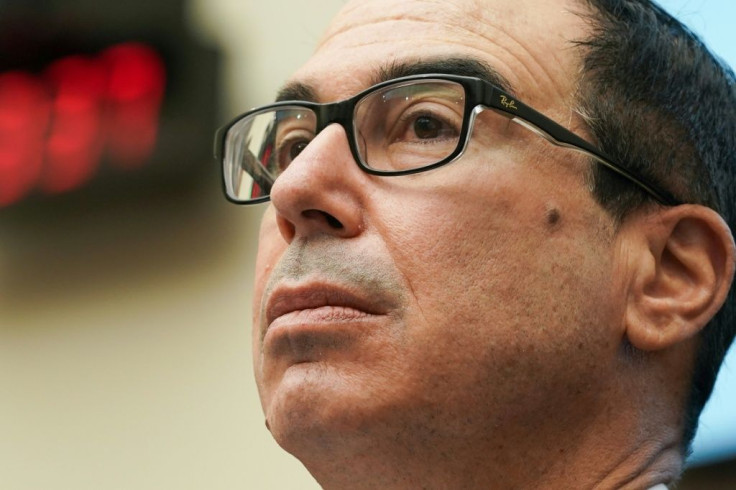White House Proposes New $916 Bn Stimulus Plan To Break Deadlock
The White House unveiled a $916 billion stimulus proposal on Tuesday in a final dash to break a months-long logjam over new aid for the coronavirus-stricken US economy before President Donald Trump leaves office in January.
Treasury Secretary Steven Mnuchin announced the plan, which he said includes "money for state and local governments and robust liability protections for businesses, schools and universities."
Those elements have been key sticking points in negotiations between Democratic and Republican lawmakers.
The proposal comes weeks before Trump is set to hand over power to President-elect Joe Biden and a new Congress takes office, and as the country struggles with the world's worst Covid-19 outbreak that has caused the worst economic downturn in a century.
"I look forward to achieving bipartisan agreement so we can provide this critical economic relief to American workers, families and businesses," Mnuchin said in a statement.
The new proposal is slightly larger than a $908 billion compromise unveiled by a bipartisan group of senators last week.
Mnuchin said he presented the package to Democratic House Speaker Nancy Pelosi, and had reviewed it with Trump and Republican Senate Majority Leader Mitch McConnell.
"Bipartisan talks are the best hope for a bipartisan solution," Pelosi and Senate Minority Leader Chuck Schumer said in a joint statement.
But "the President's proposal starts by cutting the unemployment insurance proposal being discussed by bipartisan Members of the House and Senate from $180 billion to $40 billion," the officials continued. "That is unacceptable."
The Democrats' rejection once again casts uncertainty on the adoption of a new stimulus package before Biden's inauguration on January 20.
And time is running out, as federal and state assistance for millions of Americans expires on December 26.

Democrats and Republicans in Congress, along with the Trump administration, have been negotiating for months but have been unable to agree on a successor bill to the $2.2 trillion CARES Act passed earlier this year to support the American economy.
Business shutdowns to stop the virus's spread have led to tens of millions of job losses, and though the country is seeing some signs of an economic recovery, experts fear those could peter out without new aid, as Covid-19 cases hit record levels in parts of the United States.
"My view, and I think it's a view shared by literally everybody on both sides of the aisle, is that we can't leave without doing a Covid bill," McConnell said earlier Tuesday before Mnuchin's proposal was made public. "The country needs it."
The CARES Act included a program of loans and grants for small businesses, one-time payments of as much as $1,200 to all Americans, and an expansion of the unemployment safety net, which economists credited with preventing an even worse downturn.
But much of that aid has expired, and Republicans and Democrats for months have sparred over how much to spend in another bill, and what to spend it on.
Democrats had insisted on support for struggling state and local governments, while McConnell wanted liability protections to businesses.
The Republican Senate leader earlier Tuesday suggested excluding both of those provisions in order to reach a compromise, but Pelosi blasted the idea.
"Leader McConnell's efforts to undermine good-faith, bipartisan negotiations are appalling," Pelosi said in a statement, warning that "frontline workers" could lose their jobs without more funding for state and local governments.
Looming over the negotiations is an end-of-month deadline for many of the last CARES Act benefit programs for the unemployed.
Progressive think tank The Century Foundation estimates about 12 million Americans will lose the jobless benefits from these programs when they expire on December 26.
© Copyright AFP 2024. All rights reserved.











